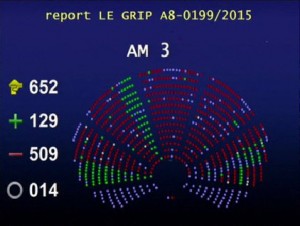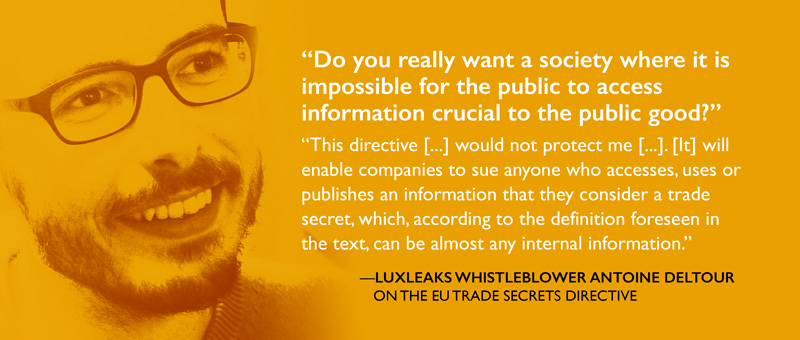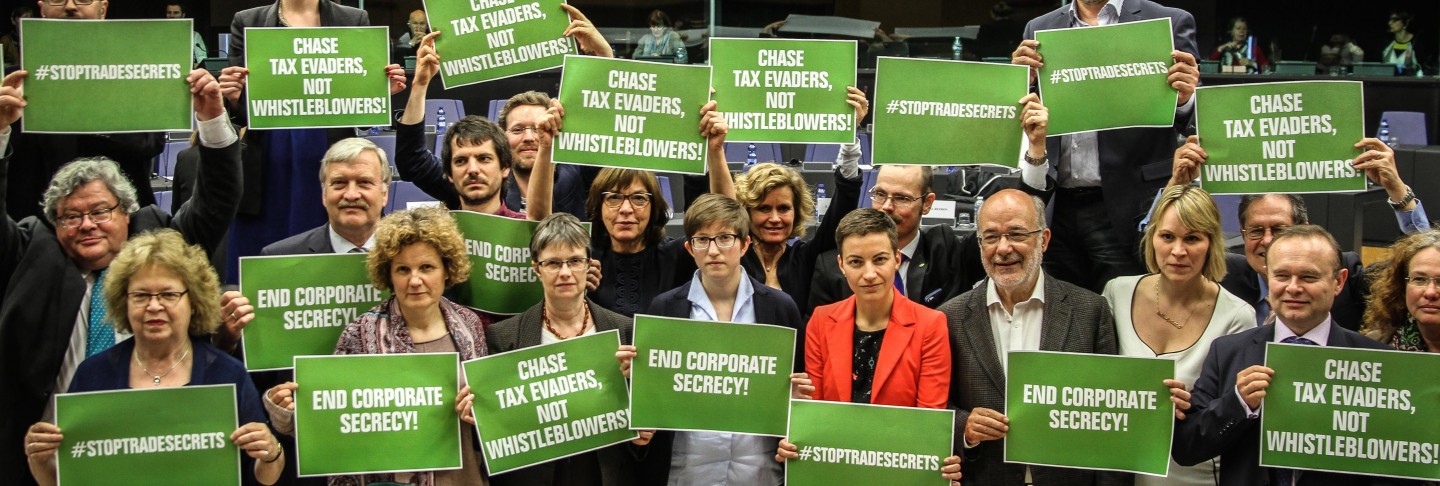European voters will not understand why our reaction to the Panama Papers consists of strengthening corporate secrecy and deterring whistleblowers. Tweet this!
 Voting results on rejecting the Trade Secrets directive
Voting results on rejecting the Trade Secrets directiveIgnoring urgent warnings by whistleblowers, journalists, trade unions and over 800,000 Europeans, the majority in the EU Parliament today adopted new rules on the protection of trade secrets.
These new rules on ‘trade secrets’ leave the door open to abuse by unscrupulous businesses across Europe. The unnecessarily broad definition of what constitutes a ‘trade secret’ will enable corporations to keep information secret with a view to circumventing legislation, even when this information should by rights be in the public domain.
This is not a new phenomenon and there are many examples, like German car inspectors being prevented from inspecting software on diesel vehicles because the government insisted on protecting the car manufacturers’ trade secrets. But we now have this bad practice established at EU level under EU law.
The new law also created major uncertainties about the role of whistleblowers and investigative journalists. All information, including information about malpractice, can be protected as a trade secret. As a result, the burden of proof that the public interest outweighs the business interest will now always lie with the whistleblower.
 Luxleaks whistleblower Antoine Deltour being awarded the European Citizens’ Prize 2015
Luxleaks whistleblower Antoine Deltour being awarded the European Citizens’ Prize 2015Coming just a week after the Panama Papers leaks, which have again underlined the vital role of whistleblowers and investigative journalists in shedding light on crucial information in the public interest, this is a major blow and has been criticised by LuxLeaks whistleblower Antoine Deltour and the journalist that reported on the scandal, Edouard Perrin.
We now urge the European Commission to present comprehensive European rules on whistleblower protection without delay and will be presenting a proposal to this end next month.

The new rules also set a worrying precedent for workers’ rights by allowing skills and know-how gained during employment to be defined as a trade secret. This would put workers in a difficult legal position on changing employment and leave them open to prosecution by former employers. With this vote, the big groups in the Parliament decided to dismiss the grave concerns voiced by trade unions such as the DGB.
To the extent possible under law, the creator has waived all copyright and related or neighboring rights to this work.
